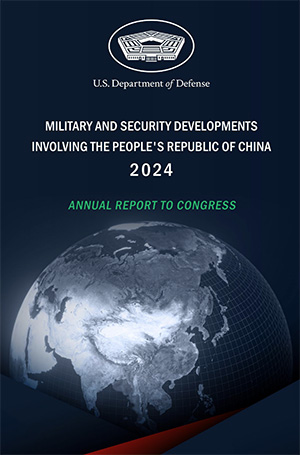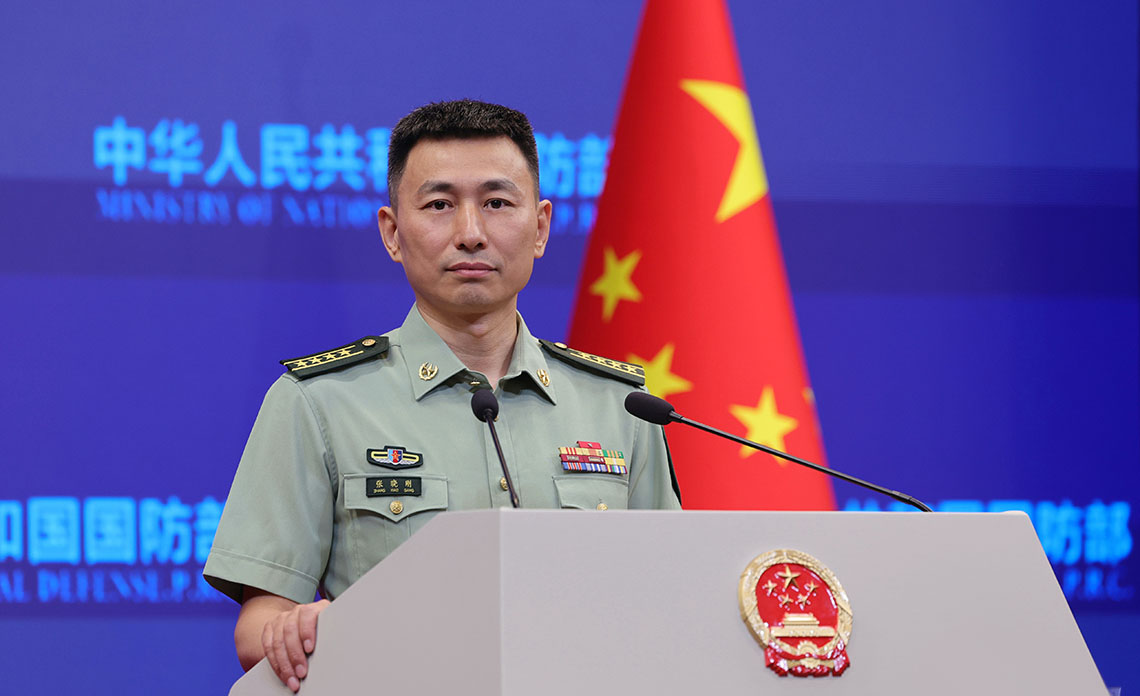China’s Ministry of National Defense has strongly criticized the latest U.S. Department of Defense report on Chinese military and security developments, accusing it of distorting facts and painting an exaggerated picture of China as a military threat.

Ministry spokesperson Zhang Xiaogang lambasted the report, claiming it misinterprets China’s defence policies, speculates on its military capabilities, and intrudes into China’s internal affairs.
”The U.S. has been publishing such deceptive and hypocritical reports year after year for over two decades, merely looking for justifications for its own military expansion and to mislead public opinion,” Xiaogang stated.
Xiaogang urged the U.S. to halt the propagation of ”false narratives” and to correct its ”erroneous perception” of China to foster a more stable and healthy bilateral military relationship. Xiaogang emphasized that China pursues a path of peaceful development with a defence policy inherently defensive, contrasting this with what he described as U.S. actions of imposing ”regime changes” and inciting ”colour revolutions” around the world, leading to significant civilian casualties and humanitarian crises.
”The ’war-addicted’ United States has become the biggest destroyer of international order and the greatest threat to global security,” Xiaogang declared, highlighting the U.S.’s role in conflicts in Iraq, Afghanistan, and Syria.
Regarding nuclear policy, Xiaogang criticized the U.S. for its stance on nuclear weapons, advocating for reducing its role in U.S. security policy. He pointed out China’s no-first-use policy as a model of restraint, in stark contrast to what he sees as U.S. provocations through initiatives like the AUKUS pact.
On the sensitive issue of Taiwan, Zhang Xiaogang warned that the U.S. arms sales and military support to Taiwan contravene the one-China principle, potentially escalating tensions towards conflict.
”The Taiwan question is the first red line that cannot be crossed in China-U.S. relations,” he asserted, calling for the cessation of U.S. engagement with Taiwan’s separatist forces.
Despite the robust criticism, Xiaogang expressed a willingness for constructive engagement, hoping for a future where military relations between China and the U.S. could be based on mutual respect, equality, and cooperation rather than confrontation.
This response did not detail the U.S. report cited by China’s Defense Ministry. Still, it is part of the Pentagon’s annual assessments of China’s military capabilities, often a point of contention in bilateral relations.
”We aim to build a military relationship based on equality and respect, characterized by no conflict or confrontation, open and pragmatic cooperation, and gradually accumulating mutual trust,” he said.
Sources and related
- US Department of Defense: 2024 Report
- Xinhua Net: Defense ministry slams recent U.S. report on Chinese military development
- Ministry of National Defense of the People’s Republic of China: Defense ministry slams recent U.S. report on Chinese military development
- NewsVoice: Taiwan is Neither Sweden’s nor the US’s Business


